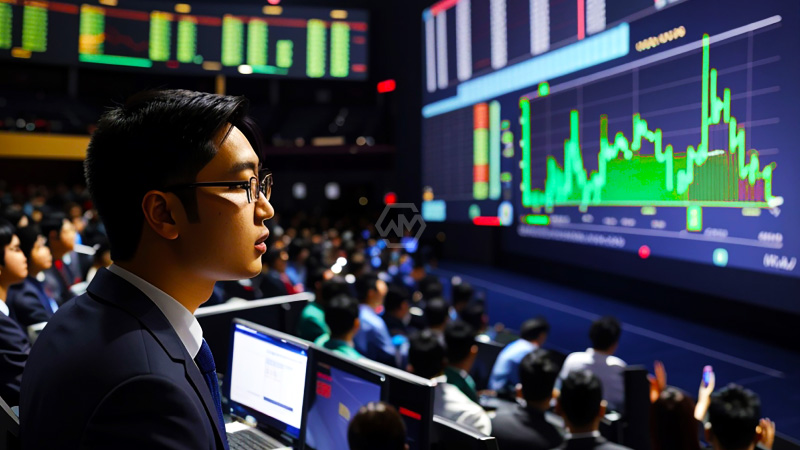- Since the COVID-19 outbreak disturbed Seoul’s nightlife, Kim Gyeong-eob has been investing in the stock market.
- The value of South Korea’s stock market increased by 23.1 percent between 2022 and 2023.
- The Korean discount is currently being actively discouraged by the South Korean government.
Since the COVID-19 outbreak disturbed Seoul’s nightlife, IT engineer Kim Gyeong-eob has been investing in the stock market. He makes a nice profit of roughly 7 million Korean won (almost $5,100) by concentrating on big, well-established businesses with modest but consistent revenue streams.
This is part of a growing trend in which young Koreans are attempting to make their fortune in stock investment. The value of South Korea’s stock market increased by 23.1 percent between 2022 and 2023, with almost one-third of its shareholders being international investors. Between 2016 and 2022, there were about 14.5 million shareholders of listed businesses in South Korea, an almost threefold increase.
Stock market
South Korea’s stock market has long been disregarded by both domestic and foreign investors, despite being home to well-known international brands like Samsung and Hyundai. The enduringly low values of business titans in the fourth largest economy in Asia are known as the “Korean discount”. Recently, Goldman Sachs noted that the sector is “ripe for a turnaround.”
The Korean discount is currently being actively discouraged by the South Korean government. The Corporate Value-up Programme was unveiled by officials in February to motivate businesses to give shareholders a larger portion of their profits.
The proposed policies call for the introduction of a Korea Value-Up index to identify top-performing businesses and tax breaks to encourage enterprises to increase shareholder returns and capital efficiency.
Japan’s success may be difficult to replicate. The Financial Services Commission of South Korea has promised to introduce “much stronger” incentives than those seen in Japan; nevertheless, investors have not been impressed with the plans thus far. Partner Park Young-gul of KPMG, an advising firm for investments, thinks that to make Korean businesses more appealing to foreign investors, more tangible regulations must be implemented.



